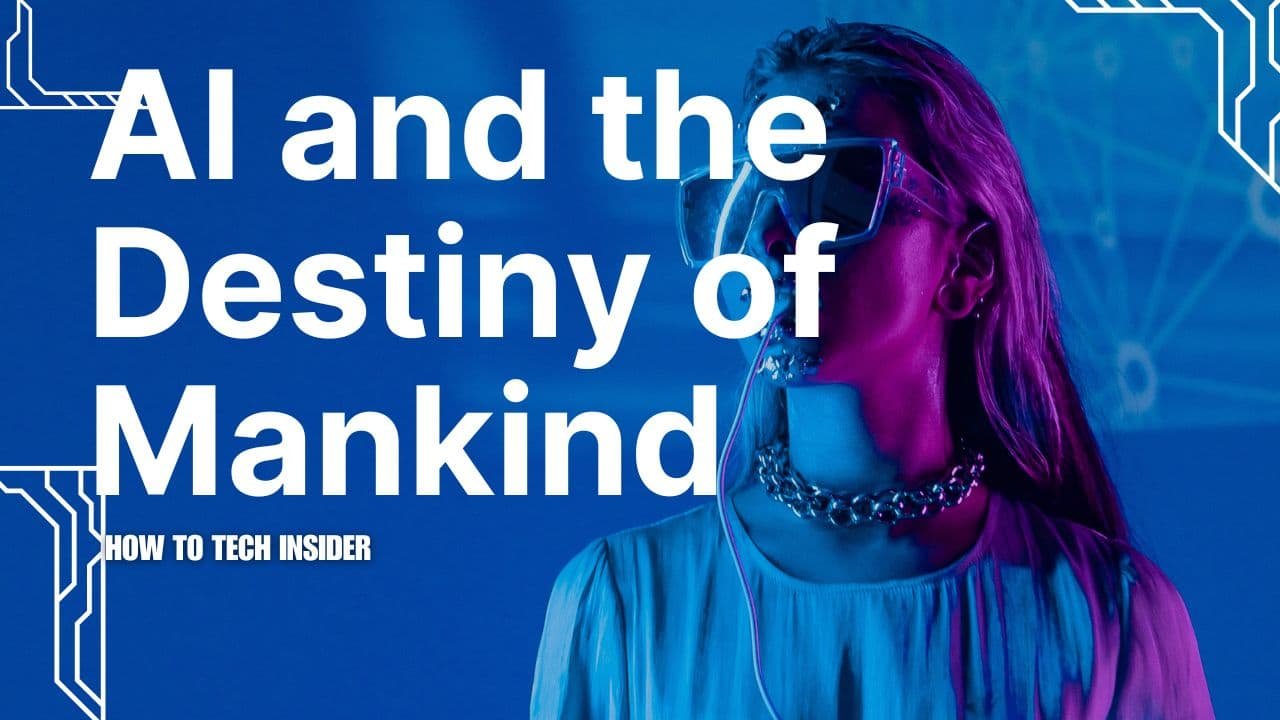In the landscape of technological evolution, few innovations possess the transformative potential of Artificial Intelligence (AI). Its emergence has sparked a myriad of discussions, ranging from existential concerns to visions of boundless progress. As AI continues to permeate various facets of human existence, it is imperative to explore its implications for AI and the Destiny of Mankind.
Understanding AI: A Catalyst for Change
AI, at its core, encompasses the development of intelligent machines capable of simulating human cognitive functions such as learning, problem-solving, and decision-making. Its applications span across industries, revolutionizing sectors like healthcare, finance, transportation, and beyond. With advancements in machine learning, neural networks, and natural language processing, AI systems are becoming increasingly sophisticated, challenging the boundaries of what was once thought possible.
Shaping Tomorrow: The Promise of AI and the Destiny of Mankind
The integration of AI holds the promise of addressing some of humanity’s most pressing challenges. In healthcare, AI-driven diagnostics and personalized treatment plans are enhancing patient care and outcomes. Additionally, AI’s predictive capabilities are revolutionizing disease prevention and early detection, potentially saving countless lives. In agriculture, AI-powered systems optimize crop yields, mitigate environmental impact, and ensure food security for a growing global population.
Moreover, AI is reshaping the way we work and interact. Automation driven by AI is streamlining workflows, increasing productivity, and fostering innovation across industries. Virtual assistants and chatbots powered by AI are enhancing customer service experiences, providing instantaneous support and personalized recommendations. As AI algorithms continue to evolve, they have the potential to revolutionize education, personalized learning experiences, and even the creative process.
Navigating Uncertainty: Challenges and Concerns
Challenges
Despite its promise, the proliferation of AI also presents significant challenges and ethical considerations. One of the primary concerns is the potential for job displacement due to automation. As AI systems become more adept at performing tasks traditionally carried out by humans, there is a risk of widespread unemployment in certain sectors. Additionally, questions surrounding data privacy, algorithmic bias, and the ethical use of AI loom large. Ensuring transparency, accountability, and fairness in AI systems is paramount to mitigating these risks.
Read more : Computer vision in AI
Concerns
Furthermore, there are existential concerns regarding the long-term impact of AI on society and humanity as a whole. Speculation about the rise of superintelligent AI, capable of surpassing human intelligence, has led to fears of uncontrollable technological escalation and the potential for catastrophic outcomes. Addressing these concerns requires thoughtful regulation, interdisciplinary collaboration, and a proactive approach to shaping the trajectory of AI development.
Embracing Collaboration: Toward a Human-Centric Future
Navigating the future of AI requires a balanced approach that prioritizes human well-being, ethical principles, and collaborative innovation. Embracing interdisciplinary dialogue and cooperation between policymakers, technologists, ethicists, and society at large is essential to harnessing the full potential of AI while mitigating its risks.
Education and awareness play a pivotal role in fostering AI literacy and empowering individuals to adapt to the evolving technological landscape. By investing in reskilling and upskilling initiatives, societies can ensure that workers are equipped with the skills necessary to thrive in an AI-driven economy. Additionally, promoting diversity and inclusivity in AI development teams can help mitigate biases and ensure that AI systems are designed with the needs of all stakeholders in mind.
Conclusion
As we stand on the precipice of a new era defined by AI, the choices we make today will shape the trajectory of humanity for generations to come. By embracing collaboration, ethical principles, and a human-centric approach, we can harness the transformative potential of AI to create a future that is equitable, prosperous, and sustainable for all.
Read more : Navigating Ethical Concerns in AI
Frequently Asked Questions (FAQs):
1. How will AI impact employment in the future?
AI has the potential to automate routine tasks, leading to job displacement in certain sectors. However, it also creates new opportunities for roles that require human creativity, empathy, and critical thinking.
2. What measures are being taken to address ethical concerns surrounding AI?
Organizations and policymakers are implementing guidelines and regulations to ensure transparency, accountability, and fairness in AI development and deployment. Ethical frameworks and oversight mechanisms are being established to address concerns such as bias, privacy, and autonomy.
3. Are there risks associated with the rise of superintelligent AI?
While speculative, the development of superintelligent AI raises concerns about existential risks and the potential for unforeseen consequences. It underscores the importance of responsible AI research, governance, and international collaboration to mitigate these risks.
4. How can individuals prepare for the AI-driven future?
Individuals can prepare for the AI-driven future by cultivating skills that are complementary to AI, such as creativity, emotional intelligence, and adaptability. Lifelong learning and staying informed about emerging technologies are also essential for navigating career transitions and staying relevant in the workforce.
5. What role does regulation play in shaping the future of AI?
Regulation plays a crucial role in balancing innovation with ethical considerations and societal impact. It sets standards for the responsible development and deployment of AI technologies, ensuring that they benefit society while minimizing risks and harm.

